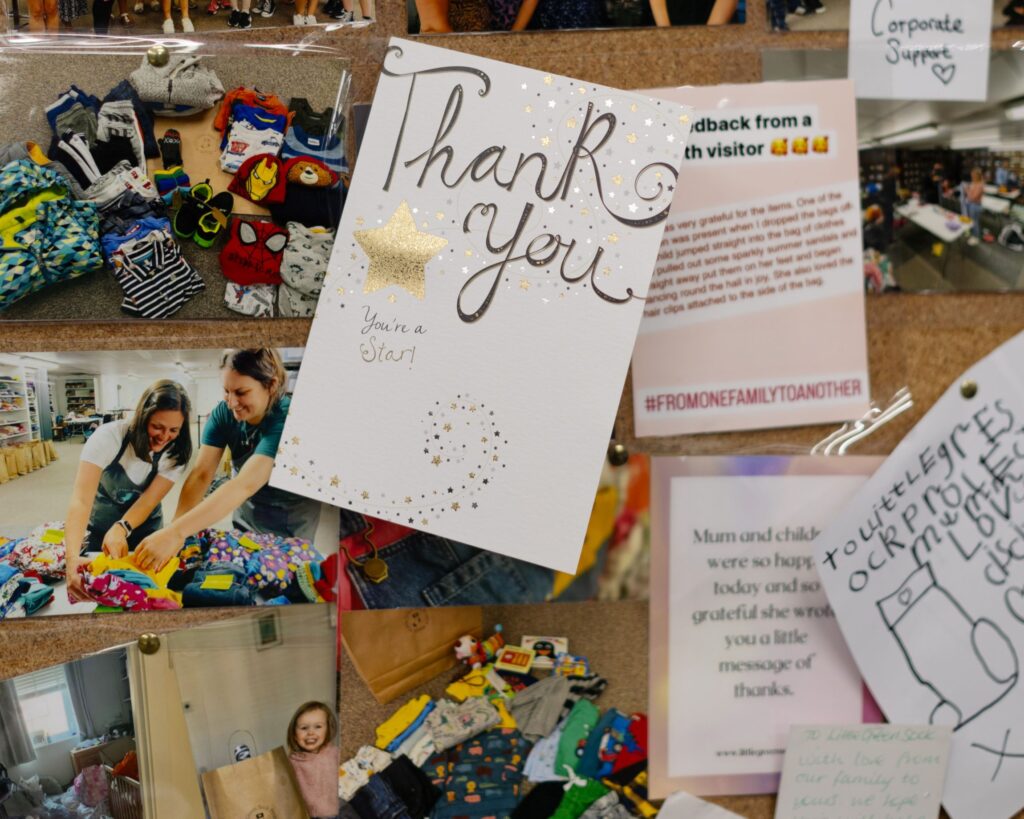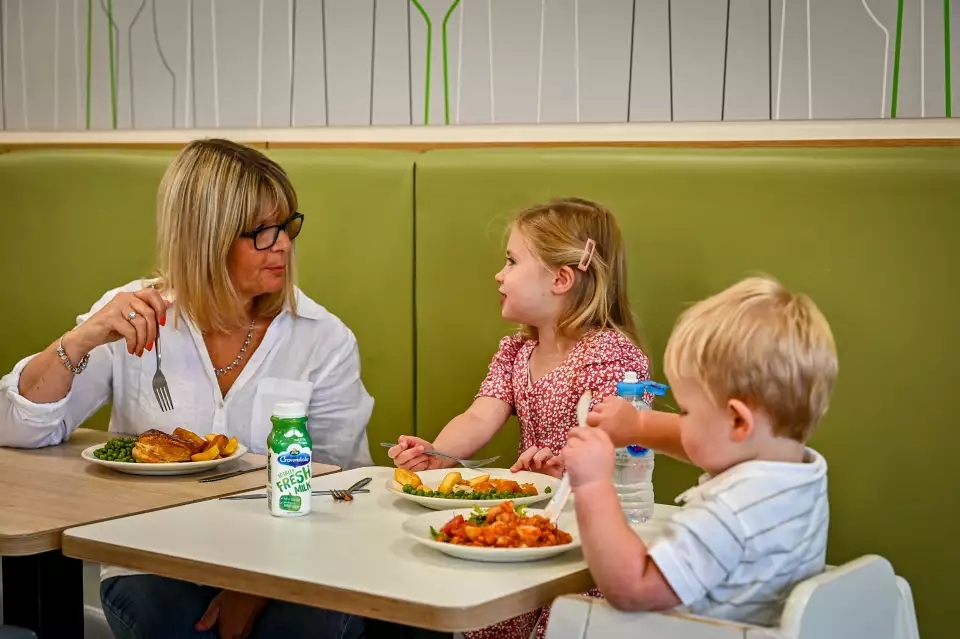Donate products

Help families facing the greatest challenges to access the essentials that they need with targeted initiatives and donations of products, services of space.
-
1. Recognise what you have to donate
Conduct an internal review to identify which products—such as food, clothing, baby supplies, or hygiene items—can be donated.
Ensure products are high quality, safe, and appropriate for the target families, adhering to any relevant safety standards and regulations.
Whilst you might have a one-off donation, try and think about the long term if you can. Since 2017, Pampers have donated more than two million Pampers Preemie Protection nappies to premature babies in Neonatal Intensive Care Units (NICUs).
Importantly, your product might not be a physical item. Think about tech solutions, storage space or business support and training which could be invaluable to the early years sector.
-
2. Identify partners
Research and establish partnerships with reputable charities, food banks, housing projects, or community groups that directly support families facing hardship.
Ensure these are partners who understand the specific needs of the families they serve to align product donations accordingly.
Unilever have a long-term partnership to donate products via In Kind Direct, a charity which distribute to thousands of local charitable organisations in their network.
In Kind Direct can take any quantity of products off your hands, helping you free up valuable warehouse space.
If you want to stay local then a great place to start is with the Baby Bank Alliance map.
-
3. Create a clear donation process
It’s fantastic when you find a great match with a partner, now there are still logistics to think about:
- Develop a simple, streamlined process for collecting, storing, and distributing donations.
- Baby banks and charities struggle for storage space – if you are making a large donation or items are bulky, they may not be able to take all your donations in one delivery
- Many of these organisations are not equipped to take donations via pallets
- Most baby banks are not open every day
- Communicate openly with your chosen partners about donation schedules, logistics, and any support they might need
As with all actions, promote the initiative internally and externally to encourage employee involvement and raise awareness of the support being provided.
Read our guide to ways of working with baby banks.
Find out more about donating products via In Kind Direct.

Case study: Asda
Asda joined forces with the charity BBC Children in need to support their ‘Fuelling Initiatives’ campaign which aim to change the lives of 100,000 children by helping to make sure they have access to nutritious meals while having fun at BBC Children in Need funded holiday sessions that help to boost their mental health and physical wellbeing. The campaign is part of Asda’s broader Better Starts campaign, which aims to improve outcomes for five million young people in five years.
Similarly, Asda’s ‘Kids Eat for £1’ meal deal offers a lifeline to struggling families and has provided a hot meal to over 3 million children across the UK.

Why this matters
Living in poverty can affect the development of a young child, leading to early disadvantages that impact throughout their lives. Investing in early childhood for children facing barriers to early development is particularly effective in reducing public spend on education, health and justice system.
Secure the necessities

